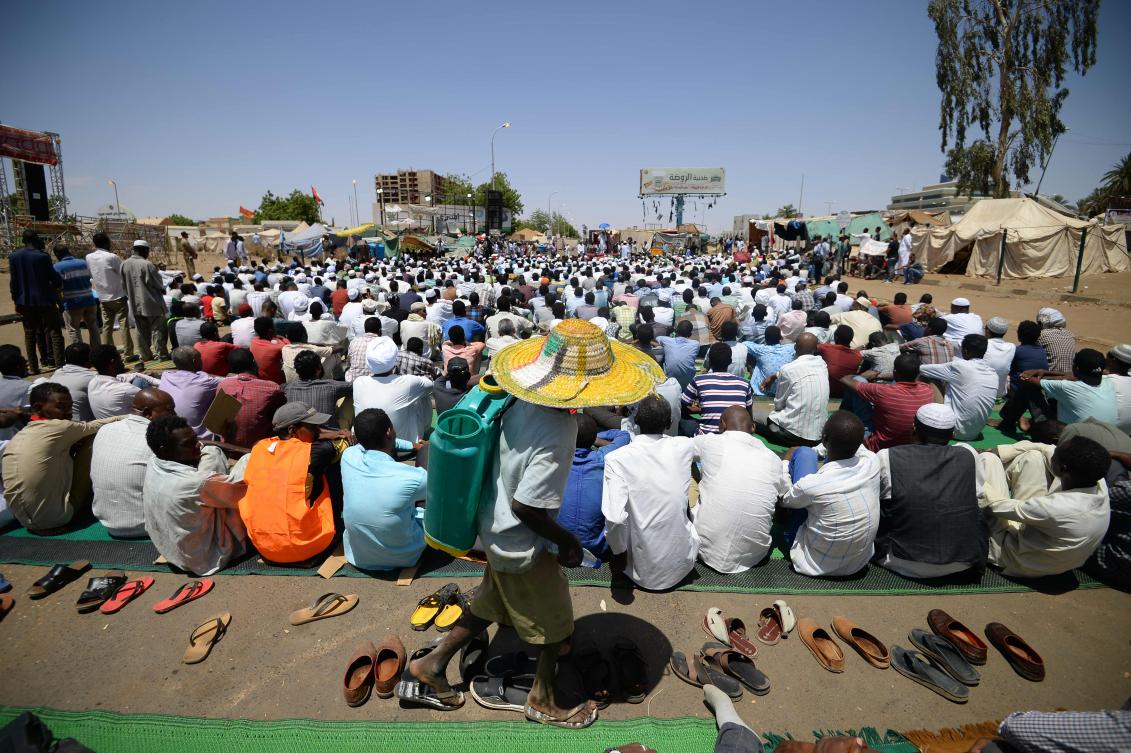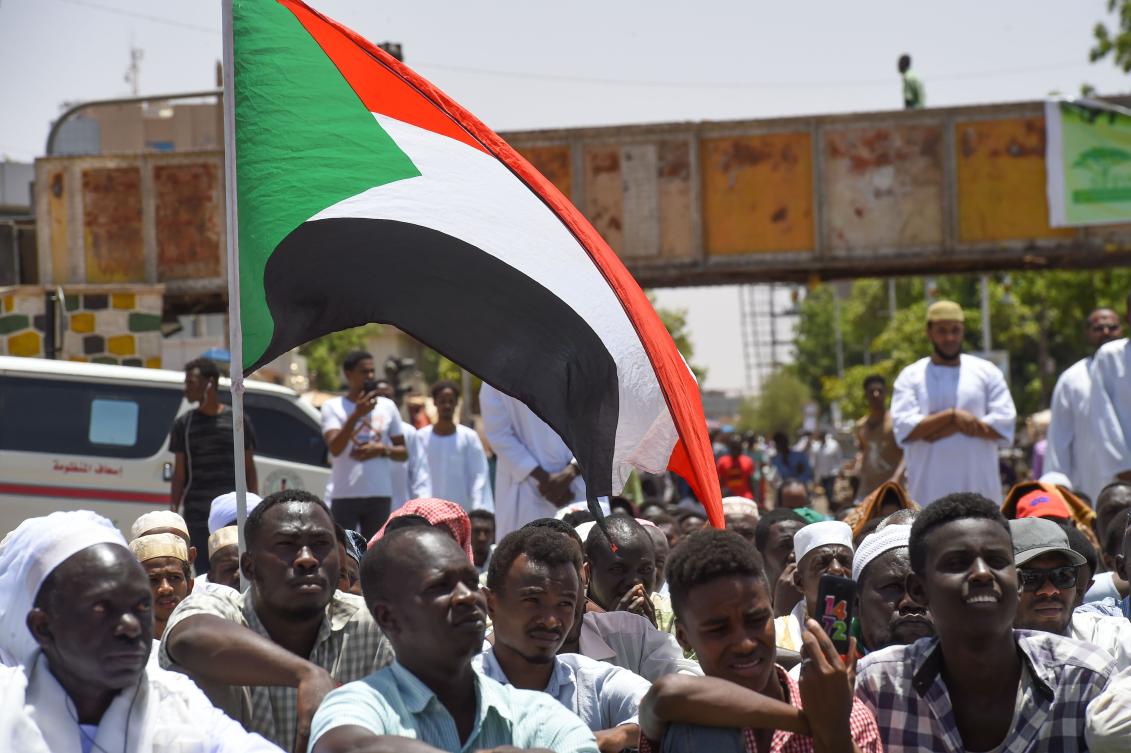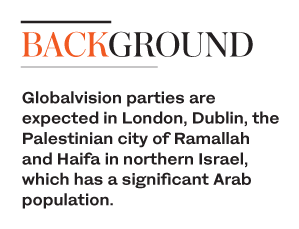Sudan protesters tear down roadblocks, want army to resume talks
KHARTOUM: Hundreds of demonstrators worked to clear away bricks and debris Friday, after military rulers demanded that roadblocks which have paralysed parts of Khartoum be dismantled before talks on a new transitional body can resume.
The ruling military council suspended crucial talks Wednesday with protest leaders for 72 hours, insisting that the security in the capital had deteriorated after demonstrators erected roadblocks on several avenues.
The council’s decision came as army generals and protest leaders were due to meet to finalise the make-up of a new body to govern Sudan for a transitional period of three years.
The issue is the thorniest to have come up in ongoing talks on installing civilian rule after the generals took over following the ouster of autocratic president Omar al-Bashir last month.
But for the final talks to happen the military council chief, General Abdel Fattah al-Burhan, demanded that protesters dismantle roadblocks, open bridges and railway lines connecting the capital and “stop provoking security forces”.
In the early hours of Friday, hundreds of demonstrators chanting revolutionary slogans tore down roadblocks on Nile Street, a key avenue, that had paralysed downtown Khartoum this week.
“We have removed the bricks… but if they do not respond to our demands then we will bring the bricks again,” protester Sumeya Abdrahman told AFP while demonstrators cleared the debris.
Later on Friday an AFP correspondent who toured the area saw car traffic resume normally on Nile Street.
Protesters had erected the barricades to pressure the military rulers when talks began on Monday, but the roadblocks triggered clashes between demonstrators and security forces according to witnesses.
The military council said roadblocks are “totally unacceptable”, but the generals will allow barricades set up by protesters outside the army headquarters to remain and a sit-in there to continue.
Talks between the two sides achieved significant breakthroughs on Monday, but were marred by violence which left five protesters and an army major dead.
Protesters blamed the paramilitary Rapid Support Force, but Burhan said there were “armed elements among demonstrators who were shooting at security forces”.
On Friday, Sudanese protesters attended prayers at the sit-in outside the military headquarters, sitting on mats placed in rows on the street.
“We have all the respect for the army and the RSF. They are our partners in the revolution,” said the prayer leader as teenagers sprinkled water on worshippers gathered under the scorching sun.
As the prayers ended, worshippers chanted “freedom, peace, justice,” the catchcry of the protest movement that brought down Bashir.
Women worshippers, who offered prayers in separate tents chanted: “Peaceful, peaceful! Civilian, Civilian,” referring to the protesters’ demand for civilian rule.
“I don’t care about the heat … What I care about is to finish this thing (the political impasse),” said protester Mohamed Ismail as he poured cold water on his head to get relieve from the mid-day sun.
The Alliance for Freedom and Change, which is leading the protest movement, said the move to suspend talks was “regrettable”.
“It ignores the developments achieved in negotiations so far… and the fact that Wednesday’s meeting was to finalise the agreement, which would have stopped the escalations such as roadblocks.”
The protest movement vowed to press on with the sit-in, and has urged supporters to converge at the army headquarters where thousands have been camped out for weeks.
Protesters are demanding a civilian-led transition, which the generals have steadfastly resisted since bowing to demonstrators’ demands in toppling Bashir.
During the first two days of talks the two sides had agreed on an overall civilian structure, including a three-year period for the full transfer of power to a civilian administration.
They had also agreed that parliament be composed of 300 members for the transition, with around two-thirds from the protest alliance and the rest drawn from other political groups.
But the make-up of the new sovereign council has been the toughest part of the negotiations, with the two sides so far proposing different compositions of the body.
The council is expected to take all key decisions concerning national issues and the generals want it to be military-led, while the protesters insist it have a civilian majority.
The body is expected to form a transitional civilian government, which would then prepare for the first post-Bashir election after changeover period ends.




Sudan protesters vow to press on after talks suspendedSudanese forces clear protesters with gunfire; talks suspended for 72 hours


 The Haifa event will feature a drag queen and other performers who will fulfil the desire for the famed Eurovision kitsch, said Najwan Berekdar, one of the organizers.
The Haifa event will feature a drag queen and other performers who will fulfil the desire for the famed Eurovision kitsch, said Najwan Berekdar, one of the organizers.
